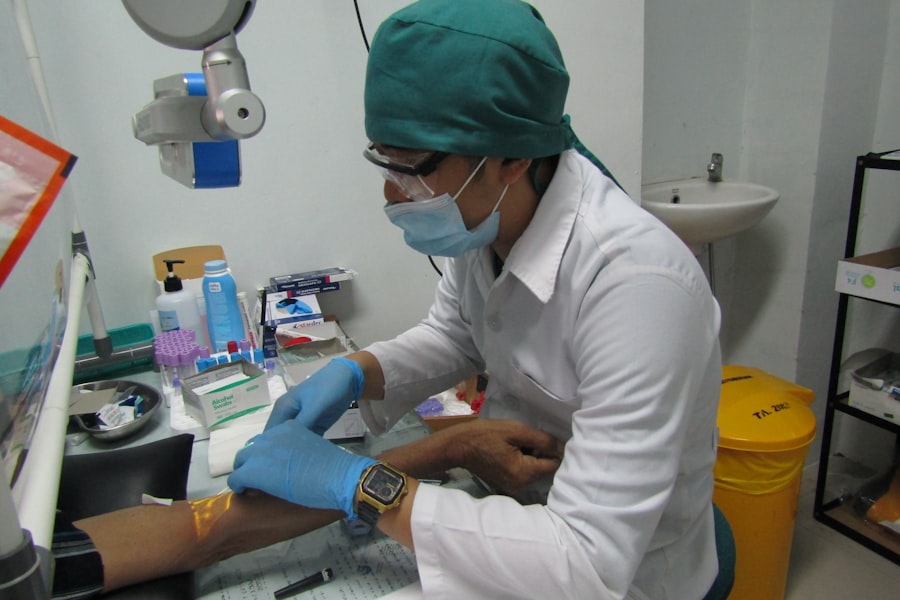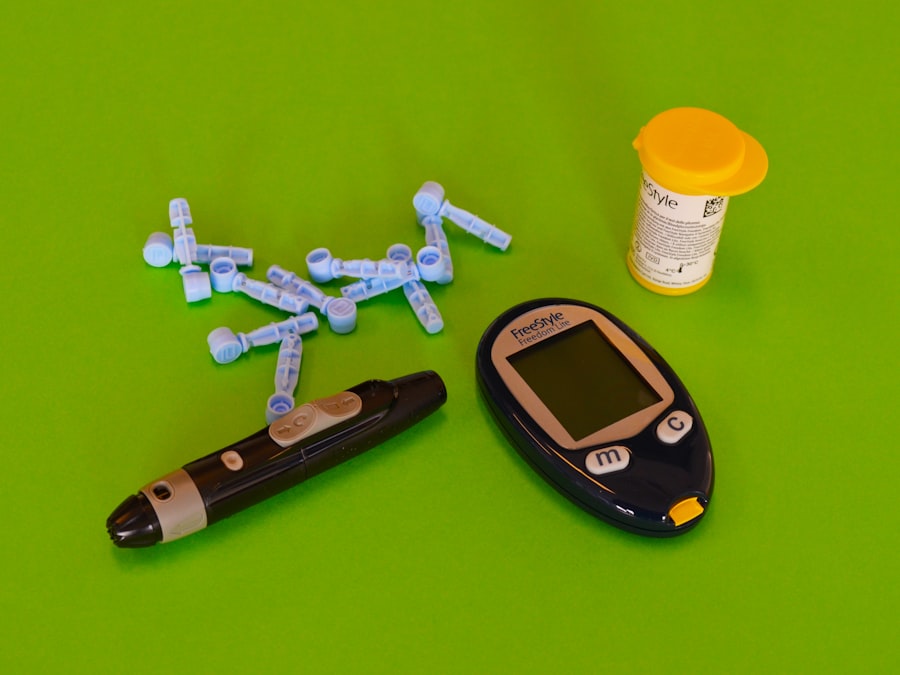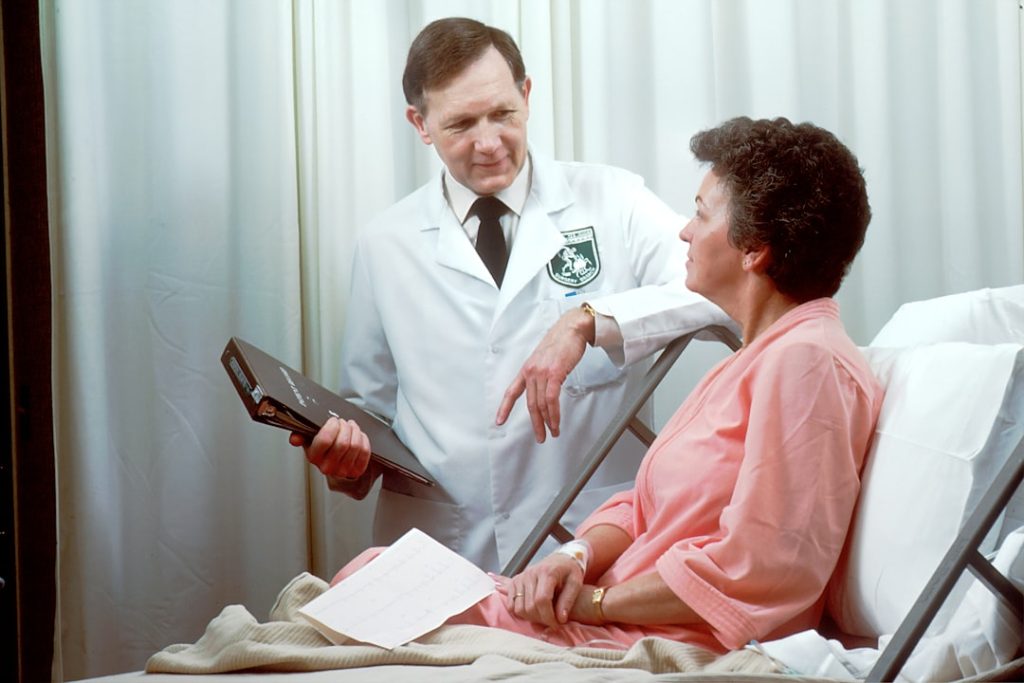In the ever-evolving landscape of healthcare, medical trials stand as a beacon of hope and innovation. These trials are meticulously designed studies that test new treatments, drugs, or medical devices to determine their efficacy and safety before they are made widely available to the public. The significance of these trials cannot be overstated; they are the backbone of modern medicine, paving the way for breakthroughs that can transform patient care and improve health outcomes.
As we delve into the world of cutting-edge medical trials, it becomes evident that they are not merely scientific endeavors but also a reflection of our collective pursuit of better health. The process of conducting medical trials is complex and multifaceted, often involving rigorous protocols and extensive regulatory oversight. Researchers must navigate a labyrinth of ethical considerations, patient recruitment challenges, and data analysis requirements.
Each trial is designed with specific objectives in mind, whether it be to test a new cancer treatment, evaluate the effectiveness of a vaccine, or explore innovative surgical techniques. The results of these trials can lead to significant advancements in medical knowledge and practice, ultimately benefiting patients and healthcare systems alike.
Key Takeaways
- Cutting-edge medical trials are advancing healthcare by testing innovative treatments and therapies.
- Local medical trials offer promising opportunities for patients to access new medical interventions.
- Participant involvement is crucial for the success and development of medical research.
- Ethical standards ensure the safety and rights of participants in medical trials.
- Getting involved in local trials can provide potential health benefits but also involves certain risks.
The Impact of Medical Trials on Healthcare
The impact of medical trials on healthcare is profound and far-reaching. They serve as the primary mechanism through which new therapies are validated and introduced into clinical practice. For instance, the rapid development of COVID-19 vaccines was made possible through expedited clinical trials that demonstrated their safety and efficacy in record time.
This not only showcased the potential for swift innovation in response to public health crises but also highlighted the critical role that medical trials play in addressing urgent healthcare needs. Moreover, medical trials contribute to the continuous improvement of existing treatments. By comparing new interventions with standard care, researchers can identify more effective options for patients.
For example, trials investigating novel approaches to managing chronic diseases such as diabetes or hypertension have led to improved treatment protocols that enhance patient outcomes. The data generated from these studies informs clinical guidelines and helps healthcare providers make evidence-based decisions, ultimately leading to better patient care.
Promising Medical Trials in Our Area

In our local community, several promising medical trials are currently underway, reflecting the dynamic nature of research in healthcare. One notable trial focuses on a groundbreaking therapy for Alzheimer’s disease, aiming to slow cognitive decline in patients diagnosed with early-stage dementia. This trial utilizes a novel drug that targets amyloid plaques in the brain, which are believed to play a significant role in the progression of the disease.
Participants in this trial not only have the opportunity to access cutting-edge treatment but also contribute to vital research that could change the landscape of Alzheimer’s care. Another exciting trial in our area is investigating a new immunotherapy for lung cancer. This approach harnesses the body’s immune system to fight cancer cells more effectively than traditional chemotherapy.
Early results from phase I trials have shown promising responses in patients who had previously exhausted all other treatment options. By participating in this trial, individuals with advanced lung cancer may gain access to a potentially life-saving therapy while also helping researchers gather critical data on its effectiveness and safety.
The Role of Participants in Medical Trials
| Participant Role | Description | Key Responsibilities | Common Metrics |
|---|---|---|---|
| Volunteer | Individuals who consent to take part in the trial to test new treatments or interventions. | Adhere to trial protocols, attend scheduled visits, report side effects. | Enrollment rate, retention rate, adherence rate |
| Patient | Participants with specific medical conditions targeted by the trial. | Follow treatment regimens, provide health data, report symptoms. | Response rate, adverse event frequency, dropout rate |
| Control Group Member | Participants receiving placebo or standard treatment for comparison. | Maintain assigned treatment, attend assessments, report outcomes. | Compliance rate, placebo effect incidence, data completeness |
| Healthy Volunteer | Participants without the condition under study, often in early phase trials. | Undergo testing, report side effects, maintain health status. | Safety profile data, adverse event rate, pharmacokinetic data |
| Dropout | Participants who discontinue participation before trial completion. | Communicate reasons for withdrawal if possible. | Dropout rate, reasons for withdrawal, impact on data integrity |
Participants play an indispensable role in the success of medical trials. Without volunteers willing to engage in these studies, the advancement of medical science would be severely hindered. Participants contribute not only their time but also their health data, which is crucial for evaluating the outcomes of new treatments.
Their involvement helps researchers understand how different populations respond to therapies, ensuring that findings are applicable across diverse demographics. Moreover, participation in medical trials often provides individuals with access to cutting-edge treatments that may not yet be available through standard care pathways. For many patients facing serious or life-threatening conditions, enrolling in a trial can offer hope when conventional therapies have failed.
Additionally, participants receive close monitoring and care from healthcare professionals throughout the trial process, which can lead to improved management of their condition even if they do not receive the experimental treatment.
Ethical Considerations in Medical Trials
The ethical considerations surrounding medical trials are paramount and must be rigorously addressed at every stage of research. Informed consent is a cornerstone of ethical research practices; participants must fully understand the nature of the trial, including potential risks and benefits, before agreeing to take part. This process ensures that individuals make educated decisions about their involvement and that their autonomy is respected.
Furthermore, ethical oversight is provided by Institutional Review Boards (IRBs), which evaluate research proposals to ensure that they meet ethical standards and protect participants’ rights. These boards assess factors such as risk minimization, equitable selection of participants, and the adequacy of informed consent processes. The commitment to ethical principles not only safeguards participants but also enhances the credibility and integrity of the research itself.
Potential Benefits and Risks of Participating in Medical Trials

Participating in medical trials comes with a unique set of potential benefits and risks that individuals must carefully consider. On one hand, participants may gain access to innovative treatments that are not yet available to the general public. This can be particularly appealing for patients with conditions that have limited treatment options or for those who have not responded well to existing therapies.
Additionally, participants often receive comprehensive medical care and monitoring throughout the trial, which can lead to better management of their health conditions. On the other hand, there are inherent risks associated with participating in medical trials. Experimental treatments may have unknown side effects or may not work as intended, leading to potential harm or adverse reactions.
Furthermore, participants may face additional burdens such as frequent visits to research sites or extensive testing procedures. It is crucial for individuals considering participation to weigh these factors carefully and engage in open discussions with their healthcare providers about their options.
How to Get Involved in Medical Trials in Our Area
For those interested in participating in medical trials within our area, several avenues exist for finding opportunities. Local hospitals and research institutions often maintain databases of ongoing clinical trials and can provide information on eligibility criteria and enrollment processes. Websites such as ClinicalTrials.gov offer comprehensive listings of trials by location and condition, allowing potential participants to search for studies that align with their health needs.
Additionally, engaging with healthcare providers can be an effective way to learn about available trials. Physicians often have insights into current research initiatives and can refer patients to appropriate studies based on their medical history and condition. Community outreach programs may also host informational sessions about clinical trials, providing valuable resources for individuals seeking to understand their options for participation.
Future Outlook for Medical Trials in Our Area
The future outlook for medical trials in our area appears promising as advancements in technology and research methodologies continue to evolve. The integration of artificial intelligence and machine learning into clinical research is poised to enhance patient recruitment strategies and streamline data analysis processes. These innovations can lead to more efficient trial designs and faster results, ultimately accelerating the pace at which new treatments reach patients.
Moreover, as awareness of clinical trials grows within the community, more individuals may be inclined to participate, fostering a culture of research engagement. This increased participation can lead to more diverse study populations, ensuring that findings are applicable across various demographic groups. As we look ahead, it is clear that medical trials will remain a vital component of healthcare innovation, driving progress and improving patient outcomes for years to come.




